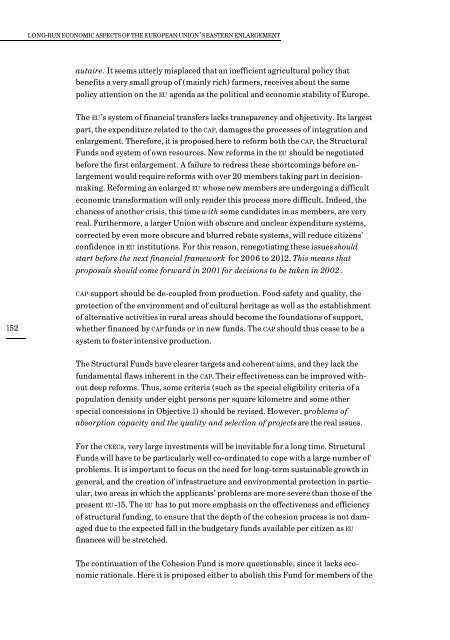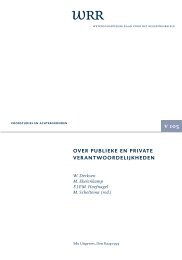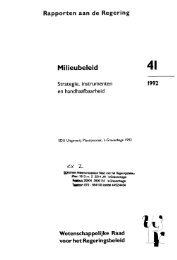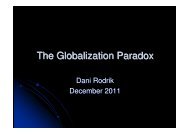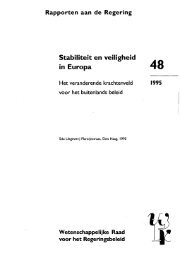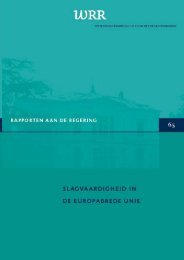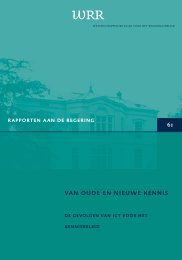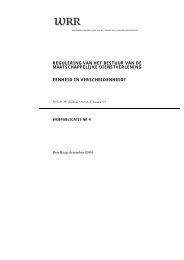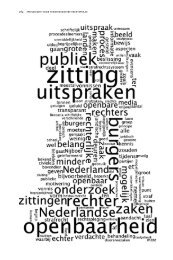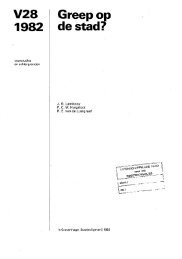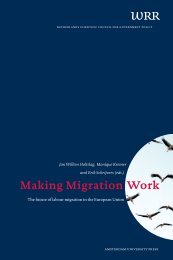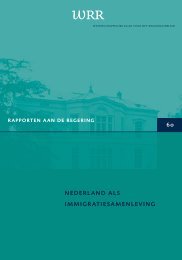w 109 long-run economic aspects of the european union's eastern ...
w 109 long-run economic aspects of the european union's eastern ...
w 109 long-run economic aspects of the european union's eastern ...
You also want an ePaper? Increase the reach of your titles
YUMPU automatically turns print PDFs into web optimized ePapers that Google loves.
LONG-RUN ECONOMIC ASPECTS OF THE EUROPEAN UNION’S EASTERN ENLARGEMENTautaire. It seems utterly misplaced that an inefficient agricultural policy thatbenefits a very small group <strong>of</strong> (mainly rich) farmers, receives about <strong>the</strong> samepolicy attention on <strong>the</strong> EU agenda as <strong>the</strong> political and <strong>economic</strong> stability <strong>of</strong> Europe.The EU ’s system <strong>of</strong> financial transfers lacks transparency and objectivity. Its largestpart, <strong>the</strong> expenditure related to <strong>the</strong> CAP, damages <strong>the</strong> processes <strong>of</strong> integration andenlargement. Therefore, it is proposed here to reform both <strong>the</strong> CAP, <strong>the</strong> StructuralFunds and system <strong>of</strong> own resources. New reforms in <strong>the</strong> EU should be negotiatedbefore <strong>the</strong> first enlargement. A failure to redress <strong>the</strong>se shortcomings before enlargementwould require reforms with over 20 members taking part in decisionmaking.Reforming an enlarged EU whose new members are undergoing a difficult<strong>economic</strong> transformation will only render this process more difficult. Indeed, <strong>the</strong>chances <strong>of</strong> ano<strong>the</strong>r crisis, this time with some candidates in as members, are veryreal. Fur<strong>the</strong>rmore, a larger Union with obscure and unclear expenditure systems,corrected by even more obscure and blurred rebate systems, will reduce citizens’confidence in EU institutions. For this reason, renegotiating <strong>the</strong>se issues shouldstart before <strong>the</strong> next financial framework for 2006 to 2012. This means thatproposals should come forward in 2001 for decisions to be taken in 2002.152CAP support should be de-coupled from production. Food safety and quality, <strong>the</strong>protection <strong>of</strong> <strong>the</strong> environment and <strong>of</strong> cultural heritage as well as <strong>the</strong> establishment<strong>of</strong> alternative activities in rural areas should become <strong>the</strong> foundations <strong>of</strong> support,whe<strong>the</strong>r financed by CAP funds or in new funds. The CAP should thus cease to be asystem to foster intensive production.The Structural Funds have clearer targets and coherent aims, and <strong>the</strong>y lack <strong>the</strong>fundamental flaws inherent in <strong>the</strong> CAP. Their effectiveness can be improved withoutdeep reforms. Thus, some criteria (such as <strong>the</strong> special eligibility criteria <strong>of</strong> apopulation density under eight persons per square kilometre and some o<strong>the</strong>rspecial concessions in Objective 1) should be revised. However, problems <strong>of</strong>absorption capacity and <strong>the</strong> quality and selection <strong>of</strong> projects are <strong>the</strong> real issues.For <strong>the</strong> CEECs, very large investments will be inevitable for a <strong>long</strong> time. StructuralFunds will have to be particularly well co-ordinated to cope with a large number <strong>of</strong>problems. It is important to focus on <strong>the</strong> need for <strong>long</strong>-term sustainable growth ingeneral, and <strong>the</strong> creation <strong>of</strong> infrastructure and environmental protection in particular,two areas in which <strong>the</strong> applicants’ problems are more severe than those <strong>of</strong> <strong>the</strong>present EU -15. The EU has to put more emphasis on <strong>the</strong> effectiveness and efficiency<strong>of</strong> structural funding, to ensure that <strong>the</strong> depth <strong>of</strong> <strong>the</strong> cohesion process is not damageddue to <strong>the</strong> expected fall in <strong>the</strong> budgetary funds available per citizen as EUfinances will be stretched.The continuation <strong>of</strong> <strong>the</strong> Cohesion Fund is more questionable, since it lacks <strong>economic</strong>rationale. Here it is proposed ei<strong>the</strong>r to abolish this Fund for members <strong>of</strong> <strong>the</strong>


